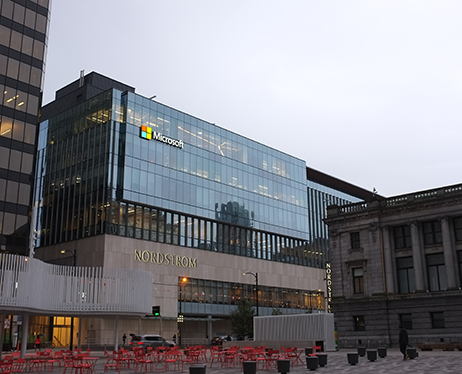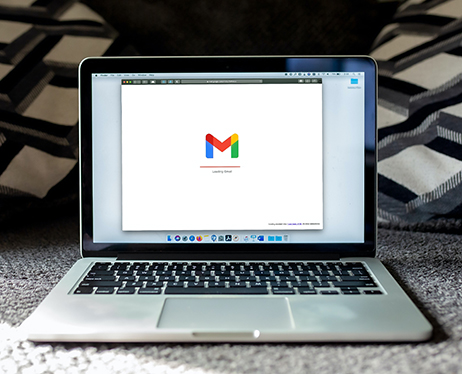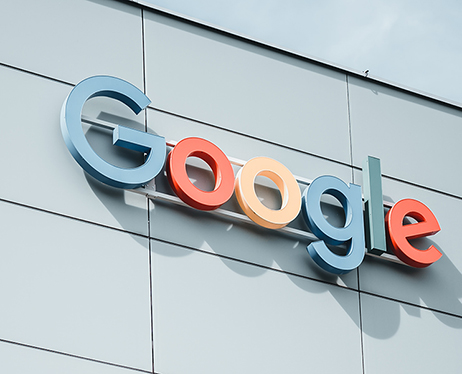Welcome to our Blog
At iPing, we are committed to keeping our clients and readers informed about the ever-evolving landscape of technology and how it impacts businesses. Through our blog posts and news articles, we provide expert analysis, practical tips, and thought-provoking content that can help you stay ahead of the curve and make informed decisions for your IT strategy.
- iPing
One of the most important things that you should be doing is making sure that your data is stored in a safe and secure place and this is now much easier and cheaper to implement since cloud storage has become so widely available. There are two kinds of cloud storage available, local cloud storage and external cloud storage, and knowing who will be accessing the data helps you determine the type of cloud storage that you will be using.
Local storage is where your data is stored in a NAS (Network-attached storage) box in your office and is designed to plug into your network seamlessly. NAS boxes are essentially storage case in which you can store 1 or more hard disks in them and they can be bought with or without hard disks. They also vary in price from €30 to over €6000 making them very affordable.
External cloud storage is where your data is stored offsite with Amazon, Microsoft etc. and it can be accessed anywhere in the world. External cloud storage is normally used by companies who have sales people out on the road who need to access data 24x7. I
If you are planning to use external cloud storage it is worth noting that there are 2 types of external cloud storage, synced and non-synced storage. Synced cloud storage is where all the data on your computer/server is replicated in the cloud. Non-synced storage is where you decide what data is stored in the cloud.
The one problem that you will run into when you use synced cloud storage is that if you decide to delete a file from your computer or sever, it will also be deleted from your online cloud storage account. The purpose of cloud storage is that it is a place you store files that are too big to store locally, or where you store multiple versions of the same file. If synced cloud storage is not going to be an issue then feel free to go with it, otherwise go with non-synced cloud storage.
iPing provide managed services and IT services and we can help provide you with various cloud storage options. So, if you need some help with the above please contact us or give us a call on 01 5241350.
- iPing
Over the past few days we have started seeing a notice from Microsoft in the bottom right hand corner of Windows. The notice is to let you know you can now upgrade to Windows 10. Firstly we wish to reassure our clients - this is an official message from Microsoft and it is safe to click on the message.
Microsoft are offering customers presently using Windows 7 and upwards a free upgrade to Windows 10. This free offer will be valid for one year from July 29th 2015. If you avail of this free upgrade, there is no additional cost for the first year of install, after this one year period, there will be a cost for Windows 10 and there will be a cost for installation on any new computers.
Microsoft have confirmed to us:
“Once you upgrade to Windows 10 with the free upgrade offer you will able to clean reinstall Windows 10 on same device any time.”
The free Windows 10 upgrade is a full version and can upgrade from an older version of Windows or perform a standalone install. Microsoft will also make the software downloadable as an ISO disc image, for those who want to keep it on DVD or a USB memory key.
iPing are advising our customers only to register for the free version of Windows 10 for now. We are suggesting a ‘wait and see’ period of around six months for Microsoft to iron out the bugs before we start planning whether or not to move iPing’s customers to Windows 10.
If you have any questions on this please give us a call or an email 01 5241350 or visit www.iping.ie
- iPing
As the old adage goes, all good things must come to an end. This was true for Windows XP and now on July 14th 2015 it will also be true for Windows Server 2003. Just like when Windows XP went end of life, Microsoft stopped supporting it and releasing patches etc for it and so the same will happen with Windows Server 2003.
If you want to see how many days are left until support ends for Windows Server 2003, you can look at the Microsoft count down timer here
So what does this mean for you and your business if you are using a 2003 server? Well the first question you have to ask yourself is what we are using our server for. If you are using your server for email, file and print sharing, you could consider either getting a new server or moving these services to the cloud. This will really depend on how much data you have for email and files and this is something iPing can advise you on.
If you are using your server to host applications that you use to run your business i.e. accountancy packages, stock control systems, CRM applications and the like, you will need to investigate how ready these systems are to move from Windows 2003 server.
Depending on the application you will either move them to newer cloud based offerings from the provider and off your server, move them to a newer version of windows server that is still supported by Microsoft or you will decide to take this opportunity to move to a new application provider who has a system that is now better for your business. In all of these cases iPing can help you to move your applications from Windows 2003 server to a supported alternative.
The most important thing in getting over the impending Windows 2003 end of life is actually addressing the problem. As of writing this blog there are 242 days of support left and this may seem like an eternity. The thing is though IT systems take time and planning to migrate as they are complex systems that are critical and if you want to be sure the move is seamless, now is the time to be thinking about moving off your 2003 Windows Server.
If you would like some help in planning your Windows 2003 Server upgrade be sure to contact iPing!
- iPing
I just received a call from someone pertaining to be from Microsoft telling me that there was a problem with my computer. The person said that he would be more than happy to help me find the problem on my computer and then they could help me fix it.
Just to further set the scene for you - the call was from a very noisy call centre with a really bad connection. It is also very important to know that we are an IT Support company based in Dublin and it is usually the iPing team who are calling people to help them with their computers and not the other way around. So it was very strange and suspicious for me to get this on spec call. I should probably also note that iPing is a Microsoft partner and this is not something they would usually call us about.
So in taking all of the above into account and being very suspicious that this was a crank call, I nonetheless went through the motions to see what it was I was asked to do so that I could let you know when you are at risk of being scammed.
- The first thing he asked me to do was to open up a very specific part of the windows event viewer so that he could show me that my computer was reporting some spurious and fake errors. He was doing this to build some trust.
- Once he thought that he had convinced me that my computer had errors and that he had my trust, he wanted to connect into my computer and fix the problems.
- When I asked him how he was going to connect into my computer, he said he wanted me to go to a website and enter some details and this would allow him to connect to my computer.
When we got to the above stage I just hung up the phone as I was now very happy that this person was a not the kind of IT support person you want to be dealing with. I had considered letting him connect into a virtual computer for some fun but I decided I had enough real work to do for some of my excellent customers and this person had taken up enough time.
After hanging up the phone, I got a call back again about ten minutes later from the same person, wondering what had happened. I told him that I knew he was a scammer trying to steal my credit card information, and he was going to get some serious bad karma for doing work like this. He asked me what made me think this and I told him that he was speaking to the owner of an IT support company and that we deal in ensuring people do not have IT problems.
Again I told him his karma was taking a beating and that he should find a better job. At this stage he lost the plot and started shouting down the phone at me calling me many bad names that I cannot mention in a business IT blog but I will be more than happy to share with you over a pint.
In summary if you get a call similar to the above from a very loud call centre saying that the person is calling you from Microsoft and the person says you have problems with your computer - you need to be very careful. As you can see from this link, Microsoft will never call you unless you call them first to report a problem to them.
We have spoken to quite a few companies in Dublin and the surrounding areas and these cyber criminals seem to be targeting people and companies in this area with this scam. We think they have extensive lists of phone numbers and are automatically dialling them and hoping to catch people unaware.
This is the attempt of the iPing IT Support team to help educate you on good IT Security.
Be Safe.
- iPing
Over the past few months we have seen a sharp increase in the number of phishing emails people are receiving from a contact that they know telling them that they have a document to download. A phishing email is one where a nasty hacker tries to get information from you without you knowing like your username, password, bank details or some other important information.
These emails are usually from a person looking to steal your username and password, get access to your emails and possibly worst of all send the scam email to all of your customers, friends and family. They are able to send emails to all of your email contacts once you click on the link they send you and enter your email address and password, as by doing this they get your email login information.
Here are some top IT support tips to let you identify one of these scam emails:
- The subject line of these emails is usually something generic so as not to create too much suspicion so this is the first thing that should make you suspicious. Some examples the iPing IT Support team have seen recently are “Document” “Link” or even “Important Google document”.
- You are asked to click on a link which brings you to a web page looking like Google which asks you to enter your email address and password to download the document.
So what do you do if you receive one of these emails:
- We are advising our clients to mark these emails as phishing to help Google and the other email companies identify them.
- If you receive one of these emails from a customer, friend or family member, you should immediately let this person know that they have been hacked and they need to change their password ASAP.
- If you have clicked on one of these emails recently, opened the link and entered your username and password, you need to change your own password straight away. For some information on good password management see the previous blog.
- If you need some help changing your Google Apps or Gmail password have a look here for some help.
- The most important thing is to be very vigilant before you put in a username and password after clicking on a link in an email. If unsure, it is worth while checking with the person who sent you the email just to confirm if they really did send it.
- If you are sending an email to a customer, it may be worth considering not using generic subject lines so as to help people know it is an email from you. This can also make the task of writing emails a bit more creative.
This is an area of the IT service industry that is changing at a frightening speed and as we become more and more reliant on technology, there are bad elements of society looking to profit from our reliance on computers.
If you wish to have a discussion with an IT expert on any aspect of your business IT services, we would be more than delighted to sit down and have a coffee and a chat with you. You can contact a member of the team through the website.
- iPing
A business phone system or a PABX is critical to the running of your business and we recommend that a business should aim to have the best one that it can afford. With this in mind it is worth spending some time on selecting the best phone system for your business as it is one of the more important decisions you will make.
If you have been in business for a few years you will be more than aware of the mammoth phone systems that filled large parts of rooms of office buildings. These big phone systems are full of cards, wires and make clicking noises as calls go through them. If your office had a big system and you were in the same room as it, you will remember it from the distinct noise it makes.
Over the past ten years, phone systems have been getting smaller and smaller and it is now the case that a phone system that would have taken up one or two racks in your office can now fit onto the equivalent size of an office computer. With this massive reduction in size, we have also achieved an exponential increase of the available voice services which would have previously only been available to multinational companies but are now available to small and medium sized companies at an affordable price.
In this article we are going to have a look at some of these voice services and what value they bring to you and your business.
Voicemail to email
It is now possible to have your voicemails recorded in sound files and then sent to you via email. If you are out on the road you can open these sound files on your smart phone or on your laptop. This means that you are getting those important messages days and hours before you would have in the past and you are able to now react to potentially critical issues before they become critical.
Conference Calls
A conference call is a call where three or more people are on the same call having a meeting. Conference calls have been around for a number of years now but with the advancements in technology, they are now more widely available and fit the price bracket of all companies. If you are a financial company by law, you may be required to have your conference hardware based in Ireland so as to make sure that any decisions taken on the call are governed by Irish law. One of the major advantages of conference calls is that they can bring people together from locations all over the world to make decisions and discuss items. When you use conference calls with VoIP you get a powerful service that is now truly cost effective. Love them or hate them, conference calls are here to stay and when they are used correctly, they are an asset to your business.
VoIP (Voice over Internet Protocol) is the glue that now binds all the New Age telephone systems together. I could talk for weeks on this topic alone. It is suffice to say that VoIP sends your voice over the internet when you are making a call and not over the old telephone lines. This means that wherever we have an internet connection we can connect back to our phone system and it also means cheap phone calls to other international destinations that were expensive in the past.
Call Recording
It is now easy to have all the calls that are made to your office recorded for future use should you require this. This can be very useful for training sales and support staff or helping with proof of authorisation if you are a financial company who takes orders over the phone.
CRM Integration
It is now very possible to have your phone system integrated into your customer database or CRM software. This mean that, for example, as you receive a call from a customer, the phone system will be able to fetch the customer details from your CRM and present the customer information to you on your computer screen. This all happens as your phone is ringing and the customer information will be presented to you in your CRM. The benefit of this is of course the superior customer service you can provide to your customers and more targeted marketing practice and sales options.
If your company has one of the old phone systems that you are using just for making phone calls and receiving phone calls, now may just be the time to take advantage of some serious advancements in phone system technology.
If you would like to update or purchase a new phone system please contact iPing.
- iPing
The battle ground has been well and truly defined now and the first shots have been fired in the war between Google and Microsoft for top spot in cloud word processing and apps that will help your business to thrive. Google are designing their offering from the ground up and this is offering them great flexibility whereas Microsoft has over twenty years of experience and a customer base that has their products in their DNA and this is something that Google will be hard pushed to match.
From the research that we have done here at iPing, we have found that collaboration is and will be king in this war and this is something that Google is currently winning at. For example if a company has a number of people working on a Google Apps spread sheet, each user can see in real time what the other user is doing whereas this is not the case in the Microsoft offering. Each user in the Google offering is given a different colour and the cell they are typing in is highlighted and this is a handy feature that stops two or more people typing in the same cell.
Bring Your Own Device (BYOD) is going to be massive in this war and for the two companies it is imperative that they get this right. This is now the first time in history that people in their personal lives are ahead of companies in their adoption of technology. In the past it was always companies that had the cutting edge technology. Some companies now expect their employees to be able to access their company technology on personal devices whereas other companies want to keep this all on company hardware. This is something that will need to be addressed and the two companies will need to make provisions for each access method.
Another thing that Microsoft and Google have marked as important in this battle is the ability for you to make video calls. Microsoft bought Skype and they are currently working frantically to improve its integration into their products to give voice and video capabilities. Google has developed Hangout that lets you make voice calls and also video calls to people that you are working with. This is something that will continue to grow over the next few years and will soon be as accepted as email.
At the moment it looks like Google is currently winning the early encounters on this war but there are many more battles remaining. Microsoft has shown time and again that once they decide they will become the best at something, they usually succeed. In the past they showed this with server operating systems, email servers and more recently the battle with Xbox and Sony PlayStation.
- iPing
It is likely that when someone says ‘Big Data’ to you, you either think that this is for multinational companies, you think that it sounds expensive or you may not know what it is. In this article I am going to explain what ‘Big Data’ is and also have a look at a possible uses for SME’s.
Every day, we create 2.5 quintillion bytes of data or information. This information is being collected all around us, all of the time, from sensors, traffic cameras, medical scanners, Facebook, YouTube, Twitter, financial transaction’s etc. Just to give you an idea of how much information 2.5 quintillion bytes is, it has been said that 5 quintillion bytes of data would be equal to all of the words ever spoken by mankind.
Some other considerations in Big Data are.
Volume: Companies have data of all types, easily amassing terabytes of information.
Velocity: The time in which data changes are recorded is ever decreasing and it is crucial. Data is changing in milliseconds now and now days like in the past.
Variety: Data can now come in a multitude of forms - structured and unstructured data such as text, sensor data, audio, video, log files.
Veracity: It is vital to be able to trust the information that you have and need to make decisions. How can you act upon information if you don’t trust it? Establishing trust in big data presents a huge challenge as the variety and number of sources grows.
For the most part this ‘Big Data’ is the story of you and every other person on the planet. The story of where you and your phone goes, the story of all the posts that you put on to social media, the story of what you search for online.
One way mobile phone companies are currently making use of ‘Big Data’ is by analysing the data that they get from mobile devices. This lets them improve their networks and the experience that they are providing to their customers. It also will let them offer new services to retailers who may also have use for this information. This can perhaps let the mobile operator lower the cost of your phone calls or help improve their profit margin.
The key to ‘Big Data’ is the ability to interpret all of the information and put a structure on it where it can be accessed very fast. An organisation which is currently utilising ‘Big Data’ very well is Google. They have access to data information on websites via their initial Google search, emails via Gmail, videos on YouTube and your phones via the phone operating system Android. They also have the expertise to search into ‘Big Data’ with years of search expertise.
One way that SMB’s can benefit from ‘Big Data’ is by researching what is being said about their company on social media. All SMB’s would benefit by knowing what is being said by their competitors and what your future customer requirements are. All this information is contained in ‘Big Data’ and the key is in unlocking the information.
So the key for small and new businesses in Ireland is to find innovative ways to take advantage of ‘Big Data’. ‘Big Data’ is only going to get bigger over the next ten years and the Facebook’s, Google’s and Twitter’s of today will be the new start-up’s that embrace ‘Big Data’. Let’s hope that there are some Irish companies who make it big with ‘Big Data’.
This article was submitted by Mark Kelly from iPing and IT services company based in Dublin city. 01 5241350
- iPing
Here are some tips that I have come to use while being in the IT services business for the past fifteen years. The suggestions below may seem like a bit of a pain but this little bit of pain will also help keep your important information a little bit safer.
- For your main Email account I suggest that you have one password that you can remember easily. This password must be at least eight characters long, it must have special characters in it i.e. {}@~>< and you should throw in some capital tellers and numbers. An example may be based on the word qucikcat and give you the password qU1cKc@t465
- It is important to change this password I would suggest once a month in some small way. This will help make sure that this important password is kept safe and secure.
- For the many websites that you now need a login for I suggest that you open a free account with the company LastPass http://lastpass.com/. This is a secure cloud based service that you can save your passwords on.
You install an application on your computer on your main computer and then every time you need a new password for a website lastPass will generate it for you. When you start up your computer you log into LastPass and it then remembers all the passwords for your many different website logins. You also need a really secure password for lastpass as it will hold quite a few of your passwords.
The great thing about LastPass is that is means you have a different password for every website. So if one website gets compromised and there passwords and emails are stolen (*which seems to happen weekly to major sites these days*) you will not have to go through the process of changing the passwords on all your websites you have ever created a login for. A good example of this was when Sony lost quite a bit of user information.
- Finally I also have really strong passwords for my internet banking that I do not keep in LastPass. This is me just being over safe and cautious in case I forget to log out of lastPass on my main computer when I leave it. Though where money is concerned online I think it is a good precaution to take.
If you follow this system you will have a pretty strong lock and key on your information kingdom and you will just have to remember three or four good passwords.
If you would like to talk to someone in iPing about securing your network please contact us on +353 1 5241350 or email This email address is being protected from spambots. You need JavaScript enabled to view it.










